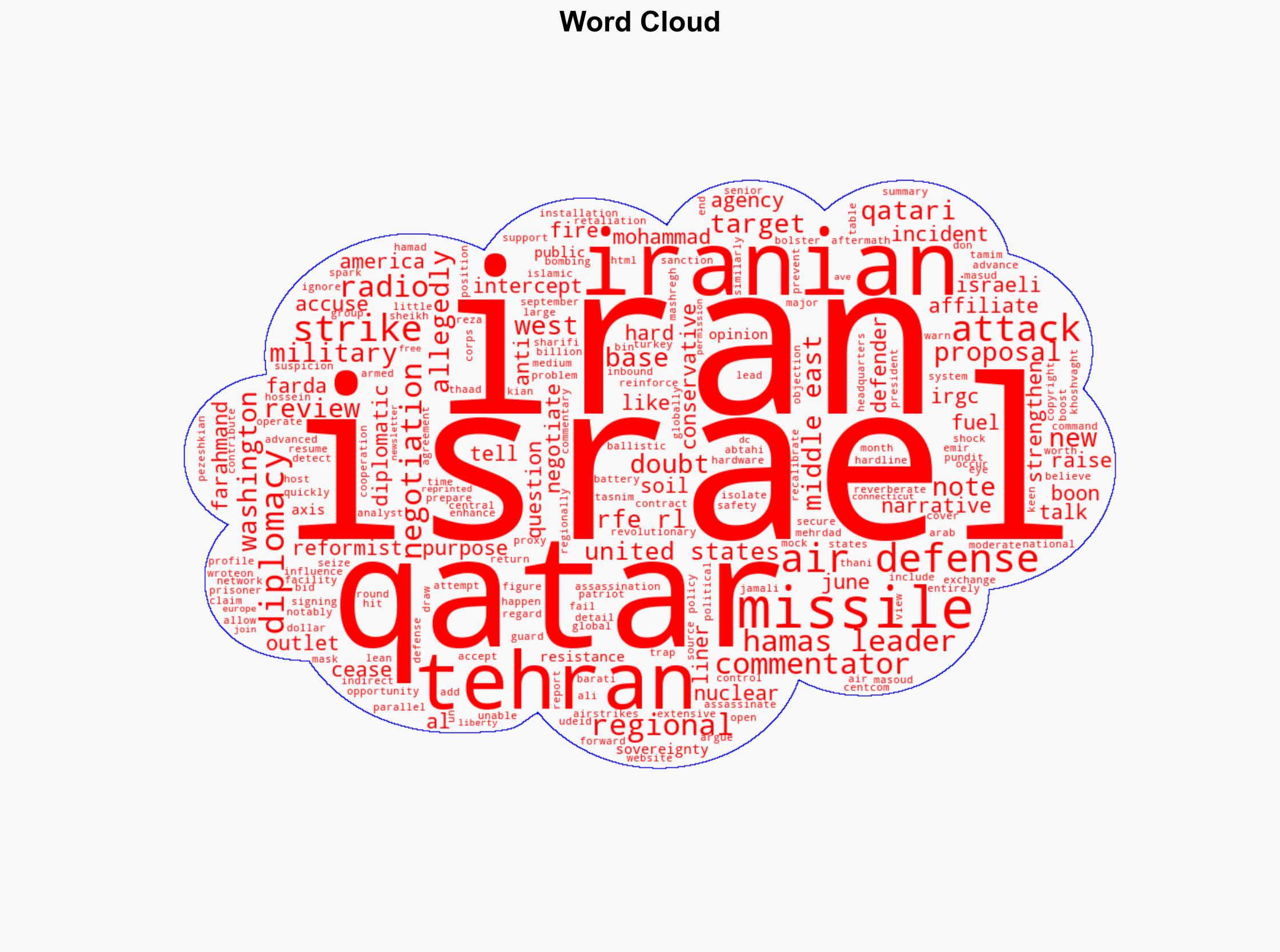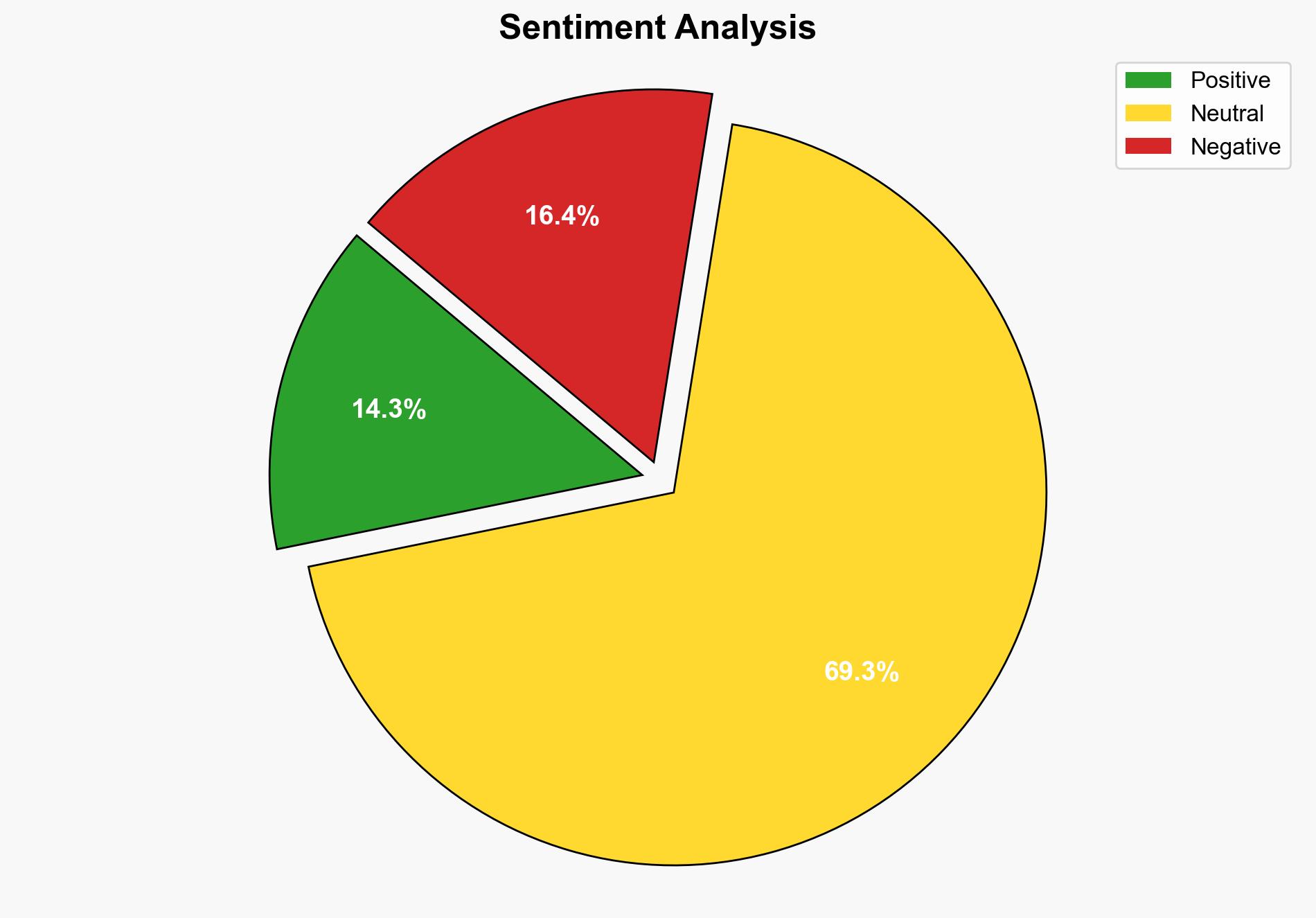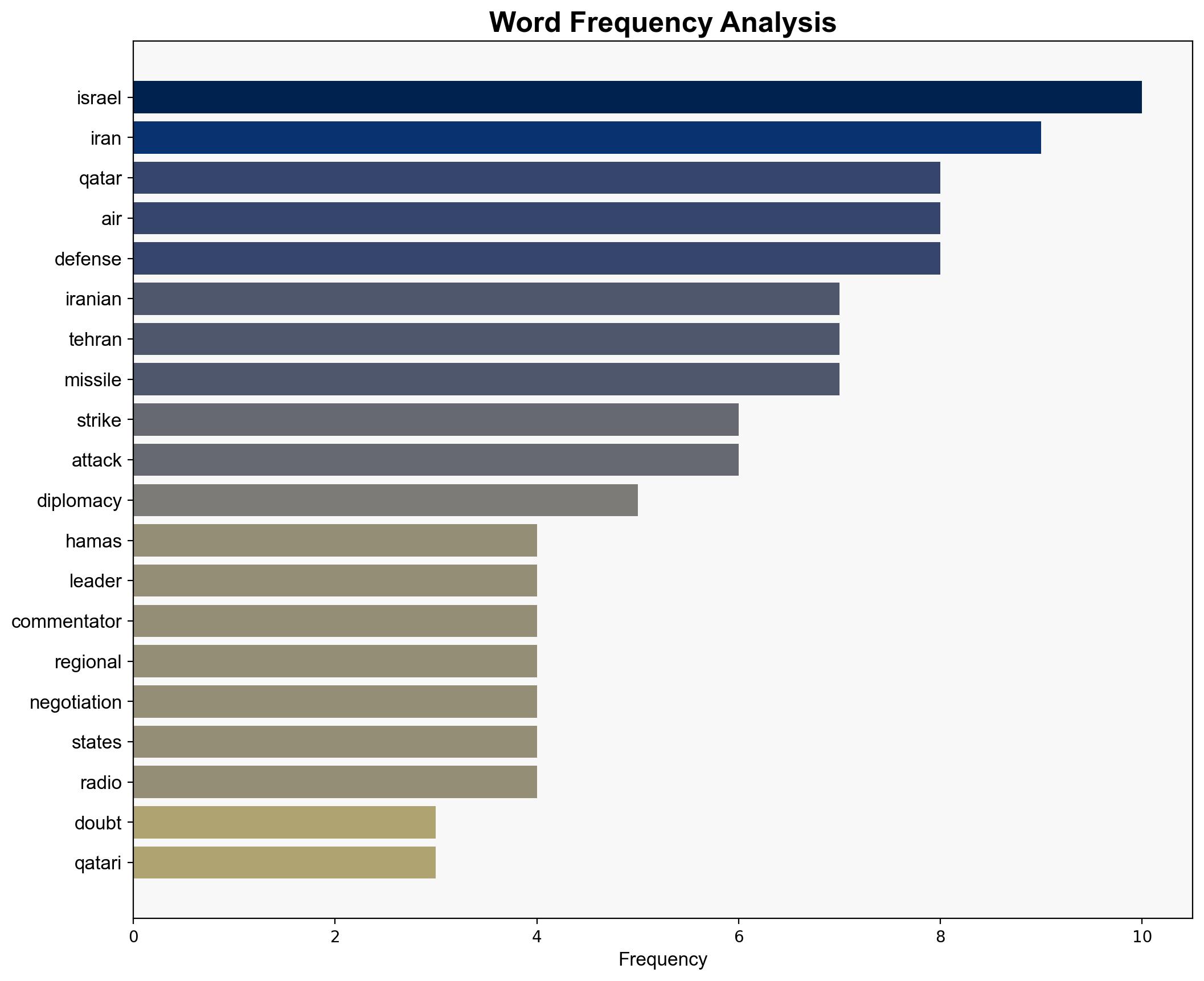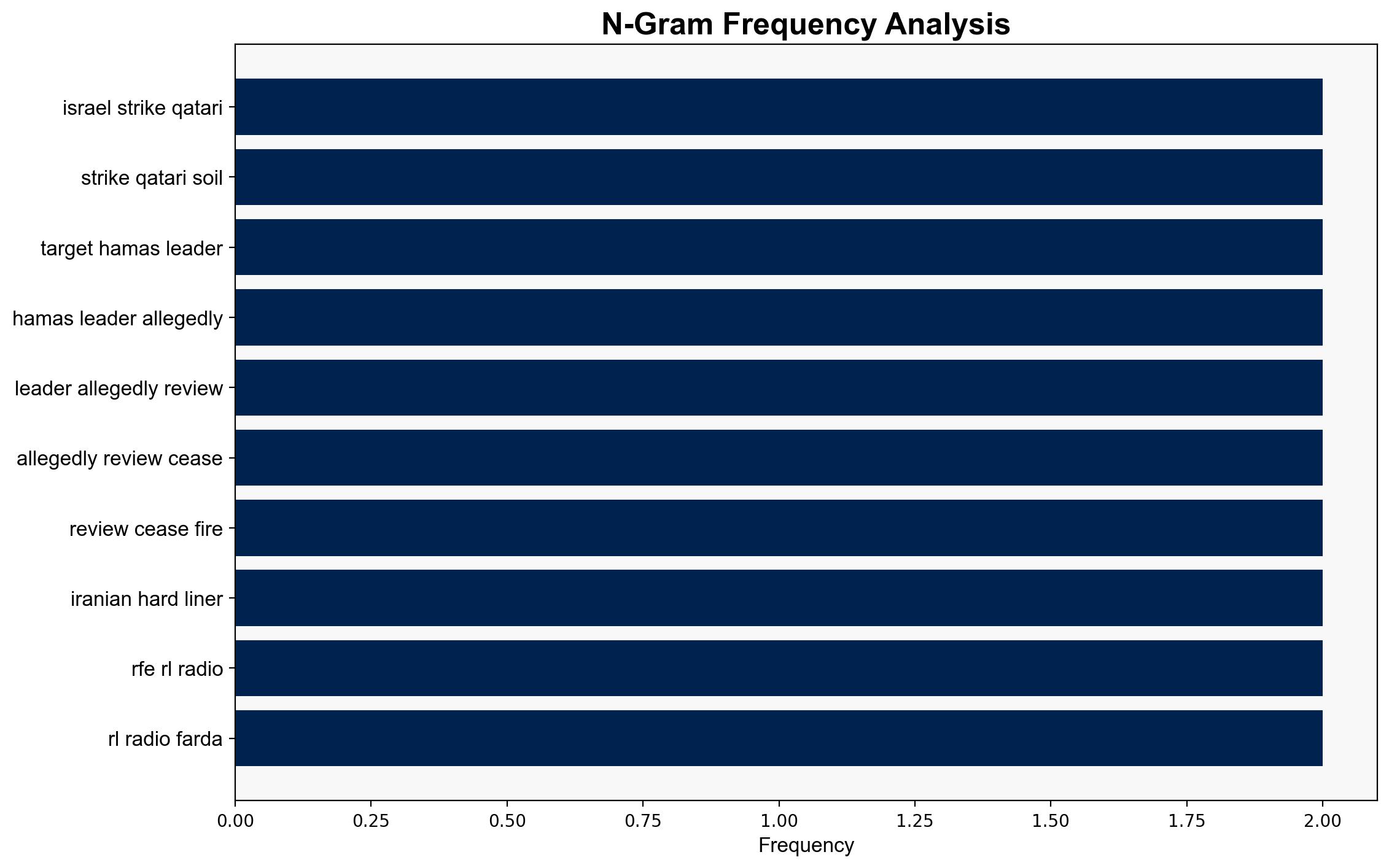Israeli Strike In Qatar Fuels Iranian Doubts Over Diplomacy – Globalsecurity.org
Published on: 2025-09-11
Intelligence Report: Israeli Strike In Qatar Fuels Iranian Doubts Over Diplomacy – Globalsecurity.org
1. BLUF (Bottom Line Up Front)
The Israeli strike in Qatar has intensified Iranian skepticism towards diplomatic engagements with the West, particularly concerning negotiations on nuclear and regional security issues. The most supported hypothesis is that Iran will leverage this incident to bolster its regional influence and anti-Israel narrative. Confidence level: Moderate. Recommended action: Monitor shifts in Iranian diplomatic and military posturing, and prepare for potential escalations in regional tensions.
2. Competing Hypotheses
1. **Hypothesis A**: The Israeli strike was a tactical move to disrupt Hamas leadership and undermine Iranian influence, using diplomacy as a facade.
– **Supporting Evidence**: The timing of the strike coincides with Hamas leaders allegedly reviewing ceasefire proposals. Israeli actions historically align with strategic disruptions of adversaries’ capabilities.
– **Contradictory Evidence**: Qatar’s advanced air defense systems failed to intercept the strike, raising questions about the true intent and execution capabilities.
2. **Hypothesis B**: The strike serves as a strategic opportunity for Iran to enhance its regional influence and strengthen its anti-Israel narrative.
– **Supporting Evidence**: Iranian commentators and media have seized the incident to criticize Israel and promote Iran as a defender of sovereignty. The incident is used to rally support for the “Axis of Resistance.”
– **Contradictory Evidence**: The potential backlash from regional actors and the international community could isolate Iran further if perceived as exploiting the situation.
3. Key Assumptions and Red Flags
– **Assumptions**: It is assumed that the Israeli strike was intentional and strategically timed to influence diplomatic negotiations. Another assumption is that Iran will successfully leverage the incident to its advantage.
– **Red Flags**: The failure of Qatar’s air defense raises questions about the operational control and effectiveness of these systems. There is a potential cognitive bias in interpreting Iranian media narratives as representative of broader governmental strategy.
– **Blind Spots**: Limited information on the internal deliberations within Hamas and the specific diplomatic engagements between Qatar and Iran.
4. Implications and Strategic Risks
– **Geopolitical Risks**: The incident may escalate tensions between Israel and Iran, potentially involving other regional actors. It could also impact ongoing diplomatic negotiations between Iran and Western powers.
– **Economic Risks**: Increased regional instability may affect global energy markets, particularly given Qatar’s role as a major LNG exporter.
– **Cyber and Psychological Dimensions**: Potential for increased cyber activities targeting Israeli and allied interests. Psychological operations may intensify to sway public opinion in the region.
5. Recommendations and Outlook
- Enhance intelligence monitoring of Iranian military and diplomatic activities to anticipate potential escalations.
- Engage with regional allies to reinforce diplomatic channels and de-escalate tensions.
- Scenario Projections:
- **Best Case**: Diplomatic efforts succeed in mitigating tensions, leading to renewed negotiations.
- **Worst Case**: Escalation into broader regional conflict involving multiple state and non-state actors.
- **Most Likely**: Continued rhetorical posturing with sporadic incidents of violence, but no full-scale conflict.
6. Key Individuals and Entities
– Kian Sharifi
– Sheikh Tamim bin Hamad Al Thani
– Masud Pezeshkian
– Mohammad Ali Abtahi
– Masoud Barati
– Mehrdad Farahmand
– Mohammad Hossein Khoshvaght
– Reza Jamali
7. Thematic Tags
national security threats, cybersecurity, counter-terrorism, regional focus





